The Redbreast (Harry Hole) Read online
Page 9
‘I’d like to see a room as high up as possible.’
Betty Andresen stared at the dripping wet shoulders of the old man’s coat. It was pouring outside. A quivering raindrop clung to the brim of his hat.
‘You want to see a room?’
Betty Andresen’s smile didn’t flinch. She had been trained according to the principle, which she observed religiously, that everyone was to be treated as a guest until the opposite was proven irrefutably. But she knew equally well that what she had in front of her was an example of the genus: old-man-visiting-the-capital-who-would-like-to-see-the-view-from-the-SAS-hotel-without-paying. They were still coming here, particularly in the summer. And it wasn’t only to see the view. Once a woman had asked to see the Palace Suite on the twenty-first floor so that she could describe it to her friends and tell them that she had stayed there. She had even offered Betty fifty kroner if she would enter her name in the guest book so that she could use it as proof.
‘Single room or double?’ Betty asked. ‘Smoker or non-smoker?’ Most started to falter at that point.
‘Doesn’t make any difference,’ the old man said. ‘The most important thing is the view. I’d like to see one facing south-west.’
‘Yes, you’ll be able to see the whole town from there.’
‘Quite so. What is the best room you have?’
‘The best is obviously the Palace Suite, but wait a moment. Shall I check if we have a standard room available?’
She clattered away on the keyboard and waited to see if he would take the bait. It didn’t take long.
‘I’d like to see the suite.’
Of course you would, she thought. She cast her eye over the old man. Betty was not an unreasonable woman. If an old man’s greatest wish was to see the view from the SAS hotel, she wouldn’t stand in his way.
‘Let’s go and have a look,’ she said, flashing her most radiant smile, which was usually reserved for regular guests.
‘Are you visiting someone here in Oslo?’ she asked out of politeness in the lift.
‘No,’ the old man said. He had white bushy eyebrows like her father. Betty pressed the lift button, the doors slid to and the lift was set in motion. She never got used to it – it was like being sucked up to heaven. The doors slid open and, as always, she half expected she would come out into a new and different world, more or less like the girl in The Wizard of Oz. But it was always the same old world. They walked through the corridors with matching wallpaper and carpets and expensive art on the walls. She put the key card in the lock of the suite, then said, ‘After you,’ and held the door open for the man, who slipped by with what she interpreted as an air of expectation.
‘The Palace Suite measures 105 square metres,’ Betty said. ‘The suite has two bedrooms, each with their own king-size bed, and two bathrooms, each with jacuzzi and telephone.’
She went into the room where the old man had taken up a position by the window.
‘The furniture was designed by Poul Henriksen, a Danish designer,’ she said, stroking her hand over the paper-thin glass top on the coffee table. ‘Perhaps you would like to see the bathrooms?’
The old man didn’t answer. He had kept his soaking-wet hat on, and in the silence that followed Betty heard a drip land on the cherrywood parquet floor. She stood beside him. From here they could see everything that was worth seeing: the Town Hall, the National Theatre, the Palace, the Norwegian Parliament – the Storting – and Akershus Fortress. Beneath them lay the Palace Gardens, where the trees pointed up towards a leaden grey sky with black splayed witches’ fingers.
‘You ought to come here on a fine spring day,’ Betty said.
The old man turned and sent her an uncomprehending look, and Betty realised what she had just said. She might as well have added: Since you have only come here to take in the view.
She passed it off with a smile as well as she could. ‘When the grass is green and the leaves are on the trees in the Palace Gardens. It’s absolutely beautiful then.’
He studied her face, but his thoughts appeared to be elsewhere. ‘You’re right,’ he said at last. ‘Trees have leaves. I didn’t think about that.’
He pointed to the window. ‘Does this open?’
‘A little,’ Betty said, relieved at the change of topic. ‘You twist the handle there.’
‘Why only a little?’
‘In case someone should get any silly ideas.’
‘Silly ideas?’
She shot him a quick glance. Was the old man going a bit senile? ‘Take a hike,’ she said. ‘Commit suicide, I mean. There are a lot of unhappy people who . . .’ She made a gesture with her hand which was intended to illustrate what unhappy people do.
‘So that’s a silly idea, is it?’ The old man rubbed his chin. Did she detect the hint of a smile among the wrinkles? ‘Even if you’re unhappy?’
‘Yes,’ Betty said resolutely. ‘At least, in this hotel while I’m on duty.’
‘While I’m on duty.’ The old man chuckled. ‘That was a good one, Betty Andresen.’
The mention of her name made her jump. Of course, he had read it on her name tag. There was nothing wrong with his eyesight then; the letters forming her name were as small as the letters of receptionist were large. She pretended to take a discreet peek at the clock.
‘Yes,’ he said. ‘You’ve probably got other more important things to do.’
‘I suppose I have,’ she said.
‘I’ll take it,’ the old man said.
‘I beg your pardon?’
‘I’ll take the room. Not for tonight, but —’
‘You’re taking the room?’
‘Yes. It is available for booking, isn’t it?’
‘Mm, yes it is, but . . . it’s terribly expensive.’
‘I prefer to pay in advance.’
The old man pulled out a wallet from his inside pocket and removed a wad of notes.
‘No, no, I didn’t mean it like that, but 7,000 for one night. You wouldn’t rather see —?’
‘I like this room,’ the old man said. ‘Please count it, just in case.’ Betty stared at the thousand-kroner notes he wafted in front of her.
‘We can sort out the payment when you come,’ she said. ‘Mm, when would you like to . . . ?’
‘As you recommended, Betty. One day in the spring.’
‘Right. Any particular day?’
‘Of course.’
17
Police HQ. 5 November 1999.
BJARNE MØLLER SIGHED AND GAZED OUT OF THE WINDOW. His thoughts wandered freely as they had tended to do of late. The rain had held off, although the leaden grey sky still hung low over police HQ in Grønland. A dog trotted over the brown, lifeless lawn outside. There was a Crime Squad post vacant in Bergen. The deadline for applications was next week. He had heard from a colleague over there that it only rained twice every autumn in Bergen: from September to November, and from November to New Year. They always exaggerated, folk from Bergen did. He’d been there and he liked the town. It was a long way from the politicians in Oslo and it was small. He liked small.
‘What?’ Møller turned and met Harry’s resigned expression.
‘You were in the process of explaining to me that a move would do me good.’
‘Oh?’
‘Your words, boss.’
‘Oh yes. Yes, that’s right. We have to make sure we don’t get stuck in a rut, with old habits and routines. We have to move on and develop. We have to get away.’
‘There’s getting away and getting away. POT is only three floors up.’
‘Get away from everything, I mean. The head of the Security Service, Meirik, thinks you’ll fit superbly into the post he has for you up there.’
‘Don’t jobs like that have to be advertised?’
‘Don’t worry about it, Harry.’
‘No? But can I be allowed to wonder why on earth you want me in surveillance work. Do I look like undercover material?’
‘No, no.�
�
‘No?’
‘I mean yes. Not yes exactly, but well . . . why not?’
‘Why not?’
Møller scratched the back of his head furiously. His face had turned fiery red.
‘For fuck’s sake, Harry. We’re offering you a job as an inspector, five notches up the pay scale, no more night shifts and a bit more respect from the bloody rookies. That’s good going, Harry.’
‘I like night shifts.’
‘No one likes night shifts.’
‘Why don’t you give me the vacant inspector’s post here?’
‘Harry! Do me a favour and just say yes.’
Harry fidgeted with his paper cup. ‘Boss,’ he said. ‘How long have we known each other?’
Møller raised an admonitory finger. ‘Don’t try that one on me. Not the we’ve-been-through-thick-and-thin-together number . . .’
‘Seven years. And for seven years I’ve interviewed people in this city who are probably the most stupid beings to walk on two legs, and still I haven’t met anyone who is a worse liar than you. Perhaps I’m stupid, but I still have a couple of brain cells left doing the best they can, and they’re telling me that it can’t exactly be my record that’s earned me this post. Nor that, to my astonishment, I can suddenly have one of the best scores in the department at the annual shooting test. They’re telling me that my plugging a Secret Service agent might have something to do with it. And you don’t need to say a thing, boss.’
Møller opened his mouth, closed it again and instead demonstratively crossed his arms.
Harry continued: ‘I know you’re not responsible for putting on this show. And even if I can’t see the whole picture, I have some imagination and I can guess the rest. If I’m right, it means that my own wishes regarding other options for my career in the police are of minor importance. So just answer me this. Have I any choice?’
Møller blinked, and kept blinking. He was thinking about Bergen again. Of snow-free winters. Of Sunday outings with his wife and boys on Mount Fløyen. Somewhere decent to grow up. A few good-natured pranks, a bit of hash, no criminal gangs and no fourteen-year-olds taking overdoses. Bergen police station. Yeah, well.
‘No,’ he said.
‘Right,’ Harry said. ‘I didn’t think so.’ He crumpled the paper cup and took aim at the waste-paper basket. ‘Up five pay grades, did you say?’
‘And your own office.’
‘Nicely partitioned off from the others, I would imagine.’ He threw with a slow, deliberate arm movement. ‘Overtime?’
‘Not at that grade.’
‘Then I’ll have to hurry home at four.’ The paper cup landed on the floor half a metre from the bin.
‘I’m sure that’s fine,’ Møller said with a suggestion of a smile.
18
Palace Gardens. 10 November 1999.
IT WAS A COLD, CLEAR EVENING. THE FIRST THING THAT struck the old man as he came out of the Metro station was how many people were still in the street. He had imagined that the centre would be almost deserted, but the taxis in Karl Johans gate were shooting back and forth under the neon lights, and crowds of people were drifting up and down the pavements. He stood at a pedestrian crossing with a gang of swarthy youths jabbering away in another language and waited for the green man. He guessed they were Pakistani. Or Arab perhaps. His thoughts were interrupted by the changing lights and he stepped purposefully across the road and up the hill towards the illuminated façade of the Palace. Even here there were people, most of them young, on their way to and from God-only-knew what. On the hill he stopped for a breather, in front of the statue of Karl Johan astride his horse, staring dreamily down towards the Storting and the power he had tried to have moved to the Palace behind him.
It hadn’t rained for over a week and the dried leaves rustled as the old man turned right between the trees in the gardens. He leaned back and studied the bare branches outlined against the starry sky above. A verse from a poem occurred to him:
Elm and poplar, birch and oak,
Deathly pale, blackened cloak.
It would have been better if there hadn’t been a moon this evening, he thought. On the other hand, it made it easier to find what he was looking for: the huge oak tree he had rested his head against the day he learned his life was approaching its end. He followed the trunk with his eyes up to the crown of the tree. How old could it be? Two hundred years? Three hundred? The tree might already have been fully grown when Karl Johan was proclaimed King of Norway. Nevertheless, all life comes to an end. His own, the tree’s, yes, even kings’ lives. He stood behind the tree so that he could not be seen from the path and eased off his rucksack. Then he crouched down, opened the rucksack and laid out the contents: three bottles of a glyphosate solution, which the sales assistant in a hardware shop in Kirkeveien had called Round-Up, and a horse syringe with a strong steel point, which he bought at a chemist’s. He had said he was going to use the syringe for cooking, to inject fat into meat, but that had been unnecessary because the assistant had just given him a bored look and had probably forgotten him before he was out of the door.
The old man looked quickly around before sticking the long steel point through the cork on one of the bottles and slowly withdrawing the plunger so that the shiny liquid filled the syringe. He probed with his fingers until he found an opening in the bark and stuck the syringe in. Things didn’t go as easily as he had imagined. He had to press hard for the syringe to penetrate the tough wood. It wouldn’t have any effect if he injected the outer layer; he had to reach the cambium, the tree’s inner, life-giving organs. He applied more pressure to the syringe. The needle shook. Damn! He mustn’t break it, he only had the one. The tip slid in, but after a few centimetres it came to a complete stop. Despite the chilly temperature, sweat was pouring off him. He gripped the syringe tight and was about to push again when he heard leaves rustling over by the path. He let go of the syringe. The sound came nearer. He closed his eyes and held his breath. The steps passed close by. When he opened his eyes again he glimpsed two figures disappearing behind the bushes, by the lookout point over Frederiks gate. He breathed out and turned his attention to the syringe again. He resolved to go for broke and pushed with all his might. And just as he was expecting to hear the sound of the needle snapping, it slid into the trunk. The old man mopped his brow. The rest was easy.
After ten minutes he had injected two bottles of the mixture and was well down the third when he heard voices approaching. Two figures came round the bushes at the lookout point and he assumed they were the same people he had seen before.
‘Hello!’ It was a man’s voice.
The old man reacted instinctively. He straightened up and stood in front of the tree so that the tails of his coat obscured the syringe, which was still in the tree trunk. The next moment, he was blinded by light. He placed his hands in front of his face.
‘Take the light away, Tom.’ A woman.
The glare was gone and he saw a cone of light dancing between the trees in the gardens.
The pair came over to him and one, a woman in her early thirties with attractive though unexceptional features, held a card so close to his face that even in the meagre moonlight he could see her photograph, obviously taken when she was a bit younger, wearing a serious expression. Plus a name. Ellen something or other.
‘Police,’ she said. ‘My apologies if we frightened you.’
‘What are you doing here in the middle of the night, grandad?’ the man asked. They were both wearing plain clothes, and under the man’s black woollen hat he saw a good-looking young man with cold blue eyes staring back at him.
‘I was only out walking,’ the old man said, hoping that the tremble in his voice wouldn’t be obvious.
‘Is that so?’ the one called Tom said. ‘Behind a tree in the park, wearing a long coat. Do you know what we call that?’
‘Stop it, Tom! Again, my apologies,’ the woman said, turning to the old man. ‘There was an attack here in the gardens
some hours ago. A young boy was beaten up. Have you seen or heard anything?’
‘I’ve only just got here,’ the old man said, concentrating on the woman to avoid meeting the man’s searching eyes. ‘I haven’t seen anything. Only Ursa Major and Ursa Minor.’ He pointed to the sky. ‘I’m sorry to hear that. Was he badly hurt?’
‘Quite badly. Please excuse the disturbance,’ she smiled. ‘Have a nice evening.’
They went off and the old man closed his eyes and fell back against the tree trunk. The next moment he was pulled up by his lapels and felt hot breath in his ear. Then the young man’s voice.
‘If I ever catch you at it, I’ll cut it off. Do you hear? I hate people like you.’
The hands let go of his lapels and were gone.
The old man collapsed and felt the cold moisture from the ground soak through his clothes. Inside his head, a voice hummed the same verse again and again.
Elm and poplar, birch and oak,
Deathly pale, blackened cloak.
19
Herbert’s Pizza, Youngstorget. 12 November 1999.
SVERRE OLSEN WALKED IN, NODDED TO THE BOYS AT THE corner table, bought a beer at the bar and took it over. Not to the corner table, but to his own. It had been his table for more than a year now, ever since he beat up the slit-eye at Dennis Kebab. He was early and for the moment no one else was sitting there, but soon the little pizzeria on the corner of Torggata and Youngstorget would be full. It was benefit day. He cast a glance at the boys in the corner. Three of the hard core were sitting there, but he wasn’t talking to them at the moment. They belonged to the new party – Nasjonalalliansen – and there had been ideological differences of opinion between them, one might say. He knew them from his time in the youth section of the Fedrelandspartiet; they were patriotic enough, but now they were about to join the ranks of the breakaway group. Roy Kvinset, irreproachably shaven-headed, was, as always, dressed in tight faded jeans, boots and a white T-shirt with the Nasjonalalliansen logo in red, white and blue. Halle was new. He had dyed his hair black and used hair oil to get it to lie flat. The moustache, was obviously what provoked people most – a neatly trimmed black toothbrush moustache, an exact copy of the Führer’s. He had stopped sporting the riding breeches and boots; instead he wore green combat fatigues. Gregersen was the only one who looked like a normal youth: bomber jacket, goatee and sunglasses on his head. He was undoubtedly the most intelligent of the three.

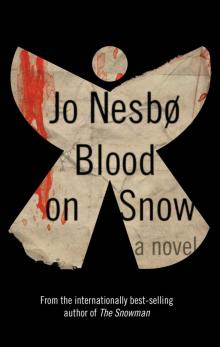 Blood on Snow: A novel
Blood on Snow: A novel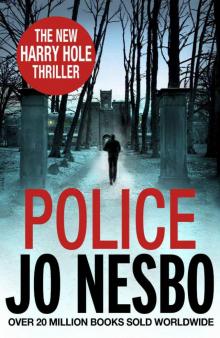 Police: A Harry Hole thriller (Oslo Sequence 8)
Police: A Harry Hole thriller (Oslo Sequence 8) Doctor Proctor's Fart Powder: The Great Gold Robbery
Doctor Proctor's Fart Powder: The Great Gold Robbery Bubble in the Bathtub
Bubble in the Bathtub Doctor Proctor's Fart Powder: Time-Travel Bath Bomb
Doctor Proctor's Fart Powder: Time-Travel Bath Bomb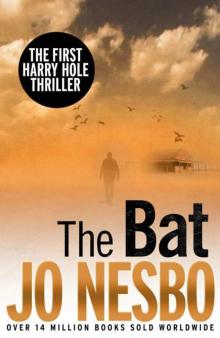 The Bat
The Bat Doctor Proctor's Fart Powder: The End of the World. Maybe.
Doctor Proctor's Fart Powder: The End of the World. Maybe. Silent (but Deadly) Night
Silent (but Deadly) Night Who Cut the Cheese?
Who Cut the Cheese? Headhunters
Headhunters The Jealousy Man and Other Stories
The Jealousy Man and Other Stories Harry Hole Mysteries 3-Book Bundle
Harry Hole Mysteries 3-Book Bundle The Thirst
The Thirst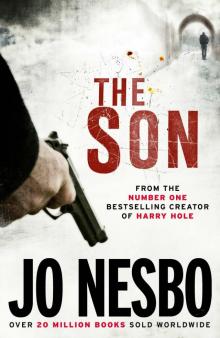 The Son
The Son The Redeemer
The Redeemer The Kingdom
The Kingdom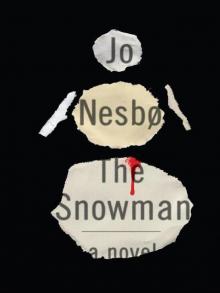 The Snowman
The Snowman The Redbreast
The Redbreast Phantom
Phantom Macbeth
Macbeth The Leopard
The Leopard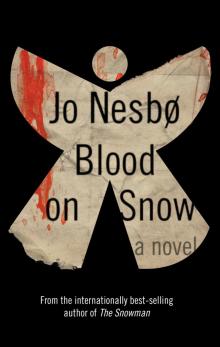 Blood on Snow
Blood on Snow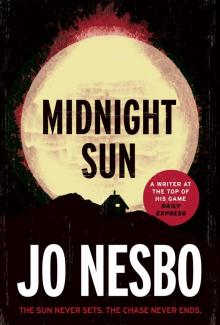 Midnight Sun
Midnight Sun The Redbreast (Harry Hole)
The Redbreast (Harry Hole)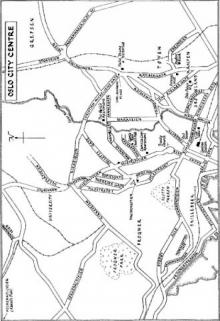 The Devil's Star
The Devil's Star Cockroaches
Cockroaches The Magical Fruit
The Magical Fruit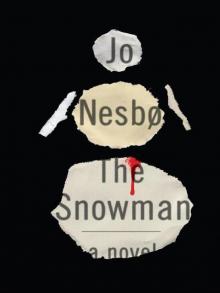 The Snowman: A Harry Hole Novel
The Snowman: A Harry Hole Novel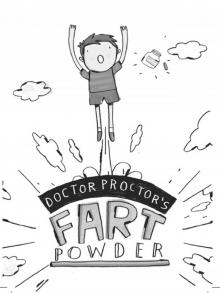 Doctor Proctor's Fart Powder
Doctor Proctor's Fart Powder The Cockroaches
The Cockroaches Knife
Knife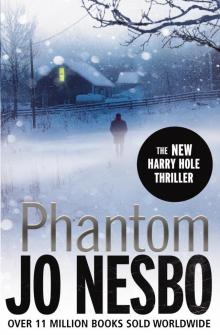 Phantom hh-9
Phantom hh-9 The Redbreast hh-3
The Redbreast hh-3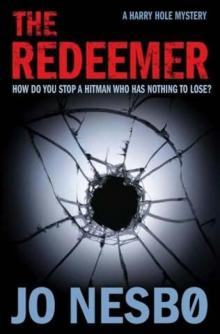 The Redeemer hh-6
The Redeemer hh-6 The Leopard hh-8
The Leopard hh-8 The Leopard: An Inspector Harry Hole Novel
The Leopard: An Inspector Harry Hole Novel The Great Gold Robbery
The Great Gold Robbery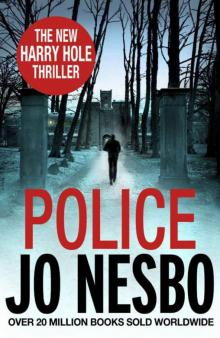 Police hh-10
Police hh-10 The End of the World. Maybe
The End of the World. Maybe The Thirst: Harry Hole 11
The Thirst: Harry Hole 11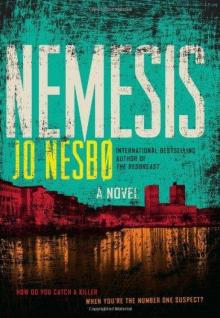 Nemesis - Harry Hole 02
Nemesis - Harry Hole 02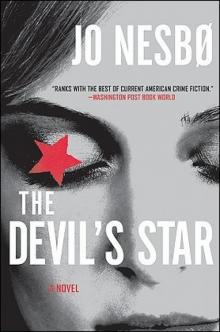 The Devil's star hh-5
The Devil's star hh-5 Time-Travel Bath Bomb
Time-Travel Bath Bomb